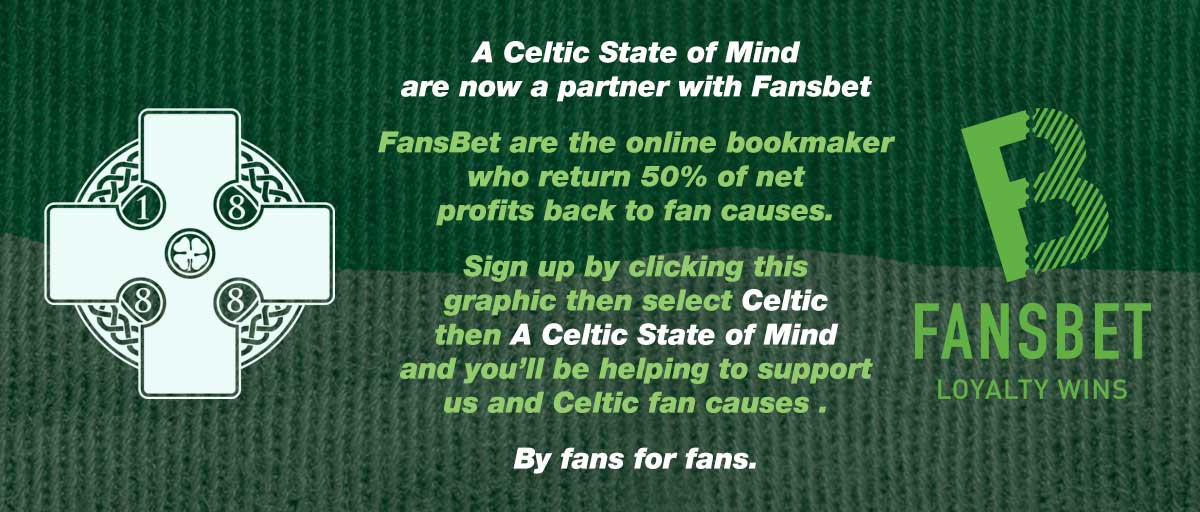Six years on from their memorable centenary celebrations, Celtic found themselves in a footballing wilderness. The families that had been associated with Celtic since their inception still continued to control the destiny of the club, but the difficulty the custodians faced was that a modern version of the game we love was in full bloom. European club football had been revamped, which led to the introduction of the riches of Champions League football and Celtic weren’t invited. Worse than that, we also had to watch on as our city rivals spent big money on big names on their way to five league titles in-a-row.
March 1994 saw the culmination of a long grass-roots battle to wrestle ownership of the club away from a family dynasty. Celts for Change, Gerald Weisfeld, stadiums in Cambuslang and a certain Canada-based business man with a penchant for bunnets. The story is well documented and there are some fascinating accounts out there in print format to enjoy.
“The game is over… The rebels have won.”
25 years on from those rousing words and the heated, passionate struggle for control of the boardroom at Celtic Park, fans of the club can look back with the confidence and knowledge that they took the necessary steps to breathe life back into the then ageing football institution. But back then the club and fans would need more than rousing speeches to welcome Celtic into the new footballing world. Investment in stadium infrastructure was a necessity after the tragic events at Hillsborough, and the subsequent output of the Taylor report. The squad and management structure also needed an overhaul, so any hope of a quick turnaround in fortunes on the pitch would need to be tempered against the stability and growth of the business.
“We have new people, a new plan, a new vision & the strength to go forward.”
Success in terms of silverware in the immediate years after the takeover was scarce. Performances on the pitch improved and fans returned in numbers, not only to support the changes in and around the new stadium, but also on the stock exchange. The hugely marketable brand name of Celtic was now being shared as a global trademark.
McCann stayed for his agreed five-year stint at the club, just enough time to build a 60,000-seated arena, the envy of many clubs all over Europe at the time. He overseen an increase in turnover, profit, season ticket holders and, perhaps most importantly to fans, our first league championship in ten years. Leaving the club to return to Canada, he had delivered success to a starved fanbase, as well as stability and structure to allow the club to continue to grow into the new millennium.
The traditional success of a football club is measured by fans with the results on the pitch; in the 25 years prior to the takeover at Celtic Park, the club had won 12 league titles, 11 Scottish Cups, 3 League Cups and appeared in a European final.
In the 25 years since the events in March 1994 our honours won have been: 14 league titles, 9 Scottish Cups, 9 League Cups and a European final.
A winning team has been delivered on the pitch thanks to a well oiled and disciplined business model first introduced under Fergus McCann. This allows us to maintain our place as the leading club in Scotland and in the wider reaches of the global football economy.
“I can tell you that we have every intention of reaching the objectives that you want, which is Celtic at the very top.”
I, along with many other fans, see Fergus McCann as the man responsible for the birth of the modern day Celtic Football Club, and although the argument still exists that he left with huge profits on his original investment, he never hid that this was always part of his plan. His plan allowed the bills to get paid, the lights to be kept on and ensured further generations of fans could enjoy being part of a club celebrating its 132nd unbroken year in November.
Martin Donaldson
Listen to the award-winning A Celtic State of Mind podcastNotice: Undefined index: src in /home/acsom/public_html/wp-content/themes/u-design/scripts/post-thumbnail.php on line 76



Leave a Reply
You must be logged in to post a comment.